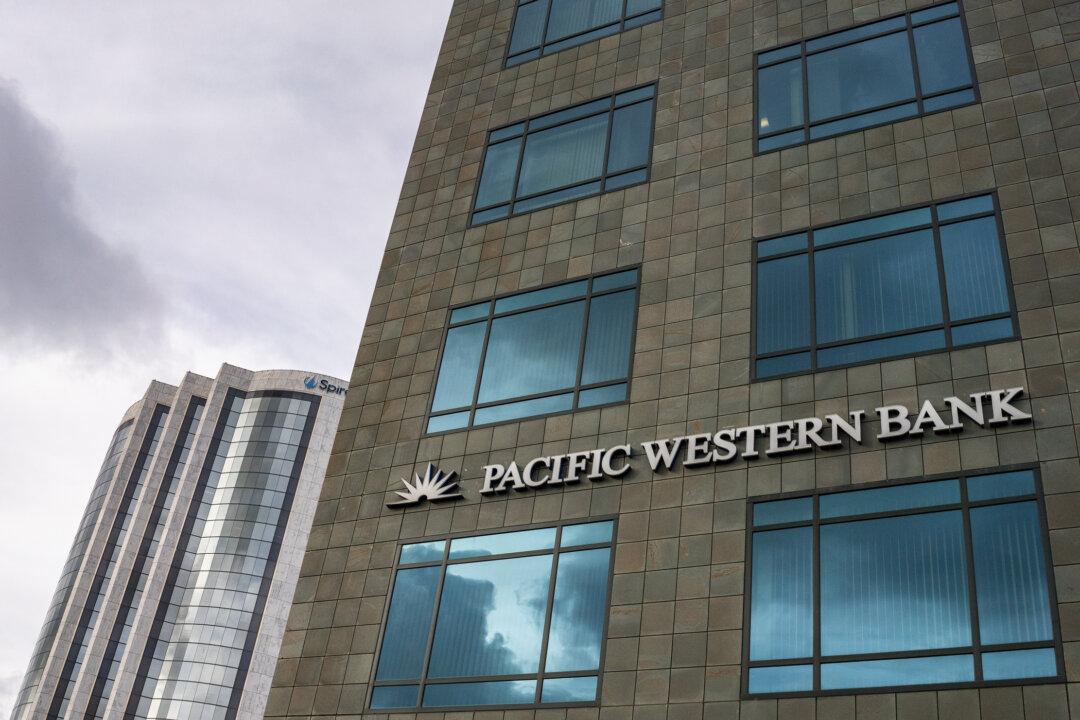Pacific Western Bank has confirmed that it’s exploring “strategic options,” which is Wall Street code for the possibility of a sale, with the bank saying it has been approached by potential investors.
PacWest Bancorp, the California-based holding company that owns Pacific Western Bank, said in a statement on May 4 that it’s in talks with potential partners and investors after the lender’s shares—and some other regional banks—tumbled amid fears of a worsening banking crisis.





